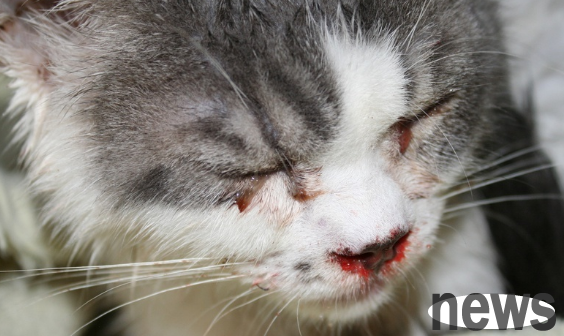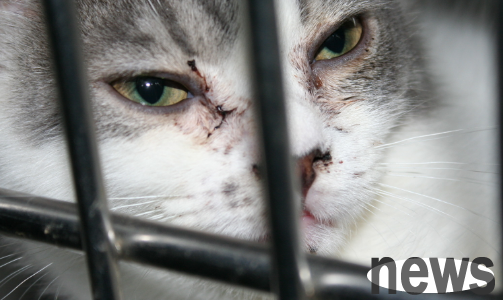What should I pay attention to when a cat has a nosebleed? A nosebleed in a cat may be a pathological symptom that needs attention. Here are some things to note:
1. Observe the color and outflow of nosebleeds. The darker the color of nose bleeding, the deeper the bleeding location and the more serious the situation may be. If the nose bleeding continues or is accompanied by other symptoms (such as sneezing, runny nose, difficulty breathing, coughing, etc.), it is recommended to seek medical treatment as soon as possible.
2. Observe the cat's mental state and appetite. If a cat's nosebleed is accompanied by symptoms such as loss of appetite, mental depression, and abnormal body temperature, it may be necessary to seek medical treatment in time.

3. Check the cat's nose for trauma or foreign objects. Some cats may suffer from nose damage when fighting or going out, or inhaling foreign objects (such as dust, pollen, etc.), causing bleeding from the nose. If there is obvious trauma or foreign body on the cat's nose, it needs to be cleaned and treated in time.
4. Avoid giving cats medicine by themselves. Some people will give cats medicine to stop bleeding on their own, but this may aggravate the cat's condition or cause other adverse reactions. If medication is required, it should be done under the guidance of a veterinarian.
In short, nosebleeding in a cat is a symptom that needs attention and requires medical treatment in a timely manner. If you notice a cat has nosebleed, it is recommended to consult a veterinarian and have a diagnosis and treatment as soon as possible.
Causes of nosebleeds in cats:
1. Trauma
When the cat's nasal cavity is hit or scratched by external force, causing the capillaries in the nasal cavity to rupture, and nosebleeds will occur. Therefore, the owner can recall whether the cat has been hit by some heavy objects before, or has had a fight, a fall, or a fall from the building, and pay attention to the cat's mental state. If the mental and appetite is normal and there is no continuous bleeding, you can observe it at home. Otherwise, you need to take the cat to the pet hospital for examination and treatment immediately.
2. The weather is dry
When the air is dry during the seasonal period or when the cat drinks less water, it will also cause the nasal capillaries to rupture and bleeding, and the cat's nose will also be dry. Therefore, the owner can check the cat's nose. If it is found that the nose is indeed very dry, the owner needs to induce the cat to drink more water and put some humidifiers in the room to increase the humidity of the environment to improve the cat's nosebleed.
3. Nasal tumor
If a tumor appears in the cat's nasal cavity, it will compress the blood vessels, which will cause blood vessels to rupture over time and cause bleeding. This condition is more common in elderly cats and is extremely harmful to cats. Therefore, if abnormal secretions or nose bleeding appear in elderly cats, it is highly suspected to be a tumor and requires a rhinoscopy to go to the pet hospital as soon as possible.
4. Respiratory tract infection
If a cat has nosebleeds and sneezing, it is likely to be caused by respiratory infection, and it is necessary to consult a pet doctor in time for medication treatment.

5. Parasite infection
If a cat often has nosebleeds, it is necessary to consider that it may be infected with ectoparasitics such as fleas and ticks. These parasites will reduce the cat's blood aggregation ability. When the blood aggregation ability decreases, it will cause uncontrolled bleeding in the cat, and in severe cases it may even endanger the cat's life. Therefore, if you find that your cat often has nosebleeds, you should pay attention and go to the pet hospital for examination and treatment in time.
